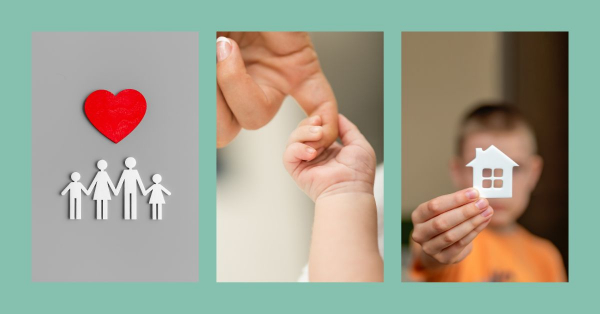From Orphanages to Foster Homes: Tracing the Path of Change
Orphanages have played a crucial role in the history of child welfare. They’ve changed significantly over the years. While the term “orphanage” is less common today, the concept has transformed into various care models including foster care. Let’s delve into the evolution of orphanages and explore their impact on child welfare.
Evolution of Orphanages
Once synonymous with child care, orphanages have evolved to address changing societal needs and perceptions. Today, the traditional orphanage model has given way to more personalized and family-oriented alternatives, such as foster care.
Common Questions:
- Q: How have orphanages evolved over time?
- A: Orphanages have shifted from large, institutional settings to more family-centric and community-based models.
- Q: Are orphanages still prevalent in the United States?
- A: The term “orphanage” is less common, but group care facilities and foster care programs provide support for children in need.
Foster Care vs. Orphanages: Understanding the Shift
Foster care has become a prevalent alternative to the traditional orphanage system. This shift reflects a deeper understanding of the importance of family-based care and individualized support for children in need.
Foster Care Dynamics
Foster care emphasizes placing children in stable, nurturing family environments rather than large institutional settings. This approach aims to provide individualized care, attention, and a sense of belonging.
Benefits of Foster Care:
- Individualized Attention:
- Foster care allows children to receive personalized attention and care within a family setting.
- Community Integration:
- Children in foster care have the opportunity to be part of a community, attending local schools, and engage in neighborhood activities.
Common Questions:
- Q: How does foster care differ from orphanages?
- A: Foster care prioritizes family-based settings, offering a more personalized and supportive environment.
- Q: Can I adopt from foster care?
- A: Yes, many children in foster care are eligible for adoption.
Challenges and Solutions in the Modern Context
While the evolution from orphanages to foster care has brought positive changes, challenges persist. Understanding these challenges and exploring potential solutions is crucial for improving the overall welfare of children.
Challenges in Child Welfare: Challenges may include issues such as the shortage of foster families, the need for more comprehensive support services, and addressing the trauma experienced by children in the system.
Potential Solutions:
- Recruitment and Support:
- Implementing effective recruitment strategies for foster families and providing ongoing support can address the shortage in licensed foster parents.
- Trauma-Informed Care:
- Training caregivers in trauma-informed care helps them understand and respond to the unique needs of children who have experienced trauma.
Common Questions:
- Q: Are there enough foster families for children in need?
- A: There is an ongoing need for more foster families, and recruitment efforts are crucial to meeting this demand.
- Q: How is trauma addressed in foster care?
- A: Trauma-informed care is a key component, ensuring caregivers are equipped to support children who have experienced trauma.
Make a Difference – Learn More about Becoming a Foster Parent
Ready to make a positive impact on a child’s life? Explore the possibility of becoming a foster parent and providing a loving home for a child in need.









